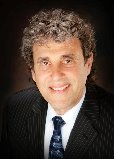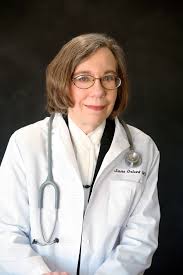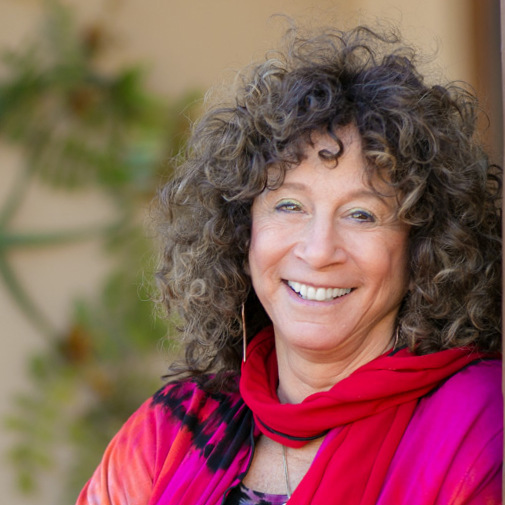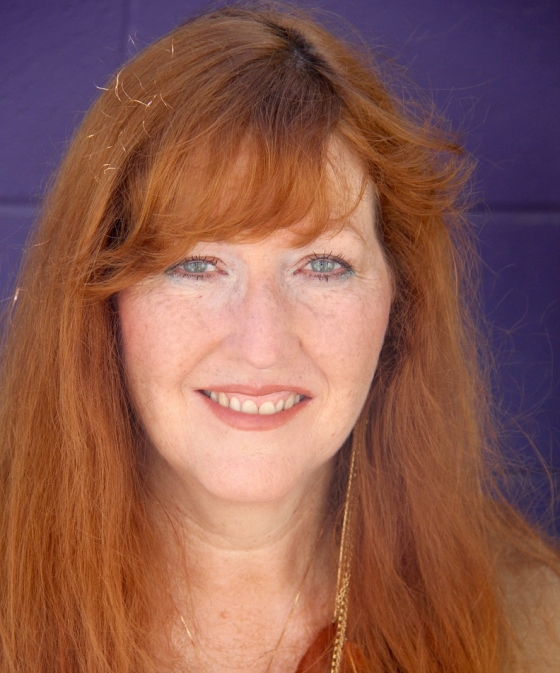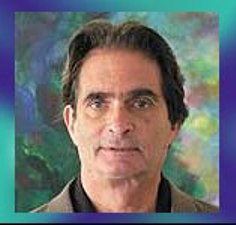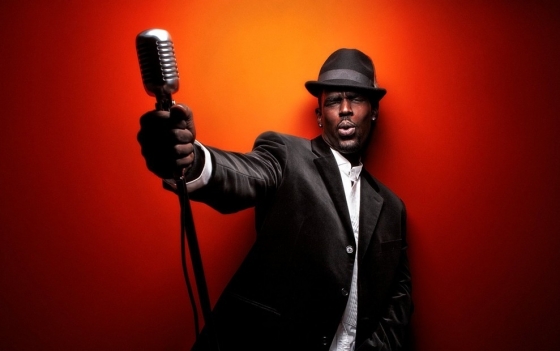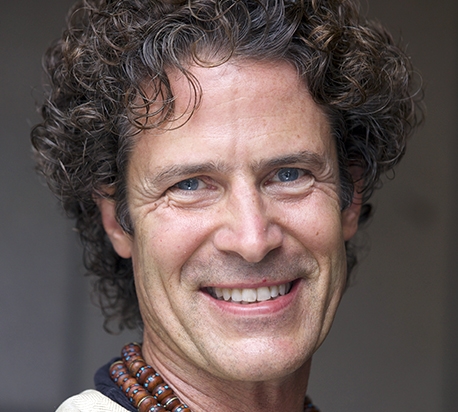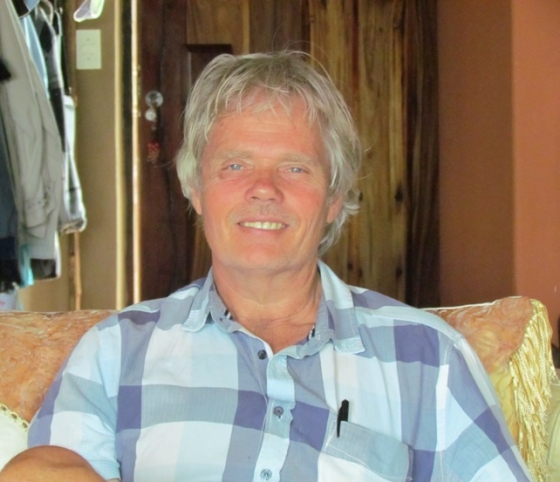Dr. David Rosensweet graduated from the University of Michigan Medical School in 1968. He has been in private medical practice since 1971, has had offices in New Mexico, California, and Colorado and is currently in practice in Southwest Florida. Formerly the clinical physician involved in the very first Nurse Practitioner training program in the U.S.A. and in charge of health promotion for the State of New Mexico. He teaches health professionals about the treatment of women in menopause with bioidentical hormones. Some highlites of his career follow:
- Nationally known lecturer and frequent presenter at A4M and ACAM
- Principle Investigator for a scientific study of female hormones sponsored by Metametrix Clinic Laboratory
- Author of the book The Target Method – A Woman’s Guide to Navigating Menopause
- Organizer of a National Summit Committee on the Treatment of Women in Menopause with Bio-identical Hormones
- Formerly on the Board of Directors of the American College of Advancement in Medicine, and the Chairman of its Endocrine Committee
JANE ORIENT M.D., is a Clinical Lecturer in Medicine at the University of Arizona College of Medicine, and Professor of Clinical Medicine at the Oregon Institute of Science and Medicine. As well, she edits the Doctors for Disaster Preparedness Newsletter and Civil Defense Perspectives. In addition, she is the editor of AAPS News, the official newsletter of the Association of American Physicians and Surgeons for which she serves as Executive Director. Her articles frequently appear in the Journal of American Physicians and Surgeons (formerly The Medical Sentinel).
Dr. Orient started out to be a doctor, a professor of medicine, and a clinical researcher. But she got distracted. The first threat to her profession that she noticed was an article entitled "A Marxist View of Medical Care" in The Annals of Internal Medicine. That cried out for a response. Researching the response led her into a number of nooks in the library that she had never explored as a chemistry and mathematics major-even to a dusty counterculture bookstore to get a copy of Mao Tsetung's Little Red Book. The eventual article was never published, at least not as a single work, but its author had been infected with a writing compulsion. After that, one thing led to another. Dr. Orient is now the author of more than 100 scientific articles, book chapters, editorials, book reviews, lectures, and essays.
Recently Dr. Orient has been the interviewed for her opinions regarding the current Ebola crisis...
"Secondhand Smoke More Than Ebola" By Bill Hoffmann and Todd Beamon 10/16/14
The Centers for Disease Control and Prevention has more safeguards against secondhand smoke than it does regarding Ebola, Dr. Jane Orient, director of the Association of American Physicians and Surgeons, said on Thursday.
"If you look at the precautions against secondhand smoke, they are absurd," Orient told "The Steve Malzberg Show" on Newsmax TV. "The hazard from secondhand smoke, unless you're just sensitive to it and it bothers you, are really nonexistent.
"And yet, we have all these ... expensive restrictions against these non-hazards - and a pathogenic, lethal organism that can infect you with one to 10 particles, we're so cavalier about?" Orient asked. "This just really does not make sense."
She told Malzberg that CDC Chief Dr. Thomas Frieden skated around answering key questions about the crisis as he was grilled by Congress on Thursday.
"Frieden evaded a lot of very important questions or pretended not to know," Orient said.
"Certainly, he evaded, despite really intense questioning, whether the White House was telling him they were not going to do a ban, whether he was in communication with the White House or whether the CDC was going to recommend a restriction in travel.
"The CDC claims not to know how those two nurses [at a Dallas hospital] got infected, despite their protective gear, because if the nurses did not breach the protocol, there's something wrong with the protocol," Orient said.
She disputed Frieden's claims that Ebola could not become airborne. It could, Orient said, through germs via "aerosols" that are created by sneezing or coughing.
"Your body fluids have to go through the air, unless you touch somebody," she told Malzberg. "You generate an aerosol if you cough or sneeze or vomit or have explosive diarrhea - and it makes droplets of different sizes.
"The ones that are really, really tiny can get through your mask, around your mask, down into your lungs," Orient said, adding that these droplets could infect "target cells down in your lungs."
The physician surmised that Frieden's thinking is based on a premise that the Ebola virus "does not survive being dried down to a particle of that size, but there's experimental evidence that it can survive for as long as 90 minutes on one of those drops down there."
When asked by Malzberg whether Ebola could, as such, is transmittable by air, Orient responded: "Theoretically, it certainly is. We cannot rule it out."
Orient is author of the book, "Sapira's Art and Science of Bedside Diagnosis," published by LWW.
Nationally known award-winning artist Lynn Rae Lowe creates unique metal designs and functional art. Lowe talks about what influences her work. She also shows us how her metal painting is done.
Lynn Rae’s works in bronze, steel, aluminum have been sold at museums, galleries and gift shops around the world.
“It’s up to you how your journey turns out. It’s all in how you see things. Over and over, I’ve embraced each turn in my life’s path and have been blessed with unexpected experiences and creations.
At 5, I joined my mother, a ballerina, and two older sisters in a dance recital. I fell on my face. My sisters said they would never dance with me again. But I learned to face an audience with a grimace that made them laugh with me.”It’s up to you how your journey turns out. It’s all in how you see things. Over and over, I’ve embraced each turn in my life’s path and have been blessed with unexpected experiences and creations.
My first stage appearance was at 9 as “The Bad Seed” with George C. Scott. The audience booed me when my character re-entered in Act III. I learned that all the world is a stage, a mask we can change at will.
By 10 my sisters staged a kitchen protest. I was too slow. I was reassigned to garden duty. Today, I’m a master gardener with a profound connection with Mother Earth.
Saturdays found me at art lessons or the art museum. It was soul elixir and by 20 I had my first one-woman art exhibit.
At 26, I moved to Telluride, Colorado with my family. The Muses were lying in wait. Over the next 15 years I created the first Artist-in-the-School program, became a consultant for Colorado Council for Arts and Humanities, wrote gardening and astrology columns, performed improvisational theater, and became station manager of an NPR station. With my muse and husband Buck, we were raising four children in paradise.
My management company produced the Telluride Jazz Festival and Telluride Film Festival where I began as the caterer and rose to Event and Art Director. I learned to envision and manifest intentions into reality.
Moving to Tucson, I returned to UA to finish my art degree. As a mature returning student, I had years of creativity on which I could draw, sculpt or paint. With my children grown, I could dedicate myself totally to realize my life’s path through art.
Buck and I looked for a hotcake to break into the art market. Instead we found a latke when in 1995 our dancing Sylph Menorah received a prestigious award. Like the menorah, we were dancing luminescent and grateful for our blessings.
In 2000 my world changed. Buck died.
I realized you don’t know how much someone is doing for you until they are gone. Our retail line could not be continued alone. And I knew I would need to stand on my own shoulders to reinvent myself.
I inventoried the basis of my reputation as a sculptor– metal, color and movement. Could I achieve the same success as a 2D artist? By challenging myself to not be attached to my image or reputation, I let go– and broke through to a totally unique, original genre of art, which I entitled “Aluminations.” Years later, the response to my inspirational images of intense color on metal proves growth comes with change.
I have learned that creativity is just accessing your imagination. Everyone has it. I want to share how to manifest your vision of a creative life through my “Drawing It Out” workshops, mentoring others, and officiating ceremonies as a certified Life-Cycle Celebrant®. I am returning the gifts I have in the best way I can.“
~ Lynn Rae Lowe
Alexandra Meadors is the creator of the popular website and blog, committed to bridging spiritual consciousness with cosmic awareness. She is also known internationally for her interviews with Cobra. On fire to prepare and shift global perspectives gracefully, respectfully, and galactically, Alexandra’s focus is to connect minds and hearts everywhere to step out of the 3D matrix unilaterally. By bringing forth the cutting-edge Implant Removal Process, Soul Alignment, and DNA Activation with the late Rev. Pam Plauché, she contributes an authentic freedom and effective unplugging from The Matrix we now live in.
Due to a debilitating car accident in 2001, Alexandra was “forced” to step out of the matrix and trek through an extremely painful and challenging 11 year journey to heal herself through every alternative healing modality available. From the lineage of Merlin, Alexandra is a master alchemist, working with quantum homeopathy, minerals, flower essences, sacred symbology, crystals, color, sound, and more to assist others in clearing past life blockages and all levels of pain. In addition to being a compassionate alchemist, Alexandra is a powerful intuitive allowing the miraculous messages from Spirit to unfold with the ego in check.
Besides holding certifications in Homeopathy, Flower Essences, and Reiki, Alexandra also holds a BA degree in Economics and a minor in Spanish from the University of California, Irvine. With over 20 years of experience in Corporate Sales and Management, she brings a balanced perspective on this thing we call life.
Jon Rappoport has worked as a free-lance investigative reporter for over 35 years and most recently his blog at: https://nomorefakenews.com has been fundamental in bringing sanity to the Coronavirus fear mongering.
He is the author of three explosive collections, http://marketplace.mybigcommerce.com/the-matrix-revealed/, EXIT FROM THE MATRIX, and POWER OUTSIDE THE MATRIX.
He has written articles on politics, health, media, culture and art for LA Weekly, Spin Magazine, Stern, Village Voice, Nexus, CBS Healthwatch, and other newspapers and magazines in the US and Europe.
In 1982, the LA Weekly submitted his name for a Pulitzer prize, for his interview with the president of El Salvador University, where the military had taken over the campus.
Jon has hosted, produced, and written radio programs and segments in Los Angeles and Las Vegas (KPFK, KLAV). He has appeared as a guest on over 200 radio and television programs, including ABC's Nightline, Tony Brown's Journal (PBS), and Hard Copy.
In 1994, Jon ran for a seat in the US Congress from the 29th district in Los Angeles. After six months of campaigning, on a very small budget, he garnered 20 percent of the vote running against an incumbent who had occupied his seat for 20 years.
In 1996, Jon started The Great Boycott, against eight corporate chemical giants: Monsanto, Dow, Du Pont, Bayer, Hoechst, Rhone-Poulenc, Imperial Chemical Industries, and Ciba-Geigy. The Boycott continues to operate today.
Jon has lectured extensively all over the US on the question: Who runs the world and what can we do about it?
Since 2000, Jon has operated largely away from the mainstream because, as he puts it, "My research was not friendly to the conventional media."
Over the last 30 years, Jon's independent research has encompassed such areas as: deep politics, conspiracies, alternative health, the potential of the human imagination, mind control, the medical cartel, symbology, and solutions to the takeover of the planet by hidden elites.
He maintains a consulting practice for private clients, the purpose of which is the expansion of personal creative power.
A painter, Jon's work has been shown in galleries in Los Angeles and New York. His poetry has been published by The Massachusetts Review.
He is a graduate of Amherst College (BA, Philosophy), and lives with his wife, Dr. Laura Thompson, in San Diego.
Ever wonder why 1 out of 3 Americans are getting cancer,
or why Coronavirus fear is so prevalent in the media now?
Are you aware that six of the ten most profitable Wall Street
stocks profit from the treatment (and creation) of disease?
Would you agree that the Hippocratic Oath was never meant
to mean, “Do no harm unless it pays well”… or that
“A pound of treatment is worth 16x’s more than
an ounce of prevention”?
Jon Rappoport is an investigative journalist, author and publisher of the website
nomorefakenews.com. He has worked as an investigative reporter for 30 years,
writing articles on politics, medicine, and health. Jon has delivered lectures and
seminars on politics, logic, health care, and creative power to audiences globally.
He returns to give the back story behind coronavirus, your immune system and
fearless truth in media and medicine for global holistic healing.
Mustafa “Effortless” Shakir
Spoken Word Poet, Artist, Singer, Songwriter.
Mustafa “Effortless” Shakir says that the term “renaissance man” is passé and that we should all refer to him as a “polymath,” the consummate hyphenate artist extraordinaire. Raised in Harlem during the 80’s and 90’s, he found himself drawn to the many art forms around him, pooling inspiration from hip hop, dance, culture, film, photography, fashion, philosophy etc. “I’ve been writing since I can remember being able to hold a pen, my mother was always writing something so I guess I took suite.” Poetry came naturally to Mustafa who has used the written word to process his emotional impressions growing up. Poetry led to rapping and three albums to date HolyWar, Chameleon, and DIEMIND: god the carbon copy; plus partnership with Candice Anitra and the Love Machine project. (new ep released 11/14)
Mustafa’s written work also includes narrative script writing, he’s written, directed, and starred in a sitcom pilot presentation called, “HollyWeird Fitness” as well as a short film entitled, “Untitled Symphony” that has won some accolades on the festival circuit. Currently his writing’s taken the shape of a one-man experience called, “XII: SpokenYouniverse;” a multi-character spoken word journey through consciousness, which is being produced by Russell Simmons for All Def Digital’s poetry Vertical.
Mustafa has been popping up here and there on the big and small screen, with “Record/Play” which was shortlisted for the Oscars in 2013 but most recently on NCIS: Los Angeles, Shameless, and slated to shoot in November a HBO mini series titled, “Crime” helmed by John Turturro.
What is closet to his heart is The Love Mob, an organization he founded with two other lights, whose goal is the reconnect 3.7 billions people to the power of love and community through Organized Acts of Love. Founded in 2012 TLM has been involved in initiatives ranging from flash mobs for a purpose to campaign support for Marianne Williamson’s bid for congress. “We are the ones we’ve been waiting for.”
An album, a sitcom, a web-series, an organization dedicated to spreading love, a short in pre-production, and a touring one man show he is certainly living up to his name “Effortless” and his claim. “….with God anything is possible.”
BIO: FRANK FITZPATRICK
Frank Fitzpatrick has proven himself to be a creative visionary and committed advocate for transforming the human spirit through music and film. As a multi-platinum selling record producer, Grammy-nominated songwriter, social entrepreneur and award-winning filmmaker, he has created the soundtracks for over two-dozen films, produced countless programs and sold over six million albums. At the heart of his work is the mastery of creativity and maximizing engagement through the technologies of emotion.
A delegate to the Skoll World Forum on Social Entrepreneurship and columnist for the Huffington Post, Fitzpatrick believes it is essential to build a bridge between the worlds of technology, media, and the arts to address humanity’s grand challenges, especially in the areas of education, health and cultural diplomacy. He has presented numerous talks and programs, including keynotes at TEDxSDSU, Singularity University, Shanghai Film Academy, Berlin Film Festival, SXSWedu and TEDxFIAP in Sao Paulo, Brazil. Fitzpatrick was recently honored as a 2013 Ciudad de las Ideas Gifted Citizen for creating the WHY Music Initiative.
As Founder and Director of the non-profit EarthTones, Fitzpatrick focuses on creating programs that make a positive contribution to our world. His experience across the business, social and entertainment sectors allows him to provide organizations with creative solutions and integrated strategies for impacting large audiences. Current EarthTones projects include Amazing – a film partnership between the NBA and Shanghai Film Group with an audience of over 50 million people across China, and WHY Music – a multi-platform social venture designed to help people more effectively harness the power of music to improve learning, creativity and well-being.
In addition to his work with Hollywood successes such as Friday, Jump In!, The Larry Sanders Show, Pirates of Silicon Valley and the billion-dollar Scary Movie franchise, Detroit-born Fitzpatrick has worked extensively in the nonprofit sector and healing arts. His work with musical pioneers like Miles Davis, Herbie Hancock, K’Naan and Ziggy Marley, as well as other global thought leaders, has further strengthened his commitment to using music and creativity as catalysts for cultivating higher levels of intelligence, adaptability and compassion in the world.
Rupert is a South African based in the city of Polokwane, and has had a keen interest in nature in general from childhood, inspired by his father. He started focussing on arachnology (specifically spiders) in his teens, which has become his hobby. He studied tour guiding, becoming a guide and tour planner in the late '90s and has been active ever since, planning tours with an emphasis on a balanced experience between both iconic South African experiences and the awesome nature this country has to offer. He is also a self taught pianist; part of a duo, performing on a semi-professional basis.

